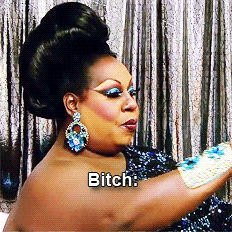For me, my adolescent brain was not that kind to me. I was already halfway through high school and aching to graduate, just like everyone else I knew at the time. And, of course, the angst was more than real. Even though I was thriving in the currents of the educational river I plunged headfirst into, I resisted the natural force that wanted to erode my edginess at every turn.
But there was a problem: I loved cracking jokes. Of course, in hindsight, I cringe at the sense of humor of my early teen years, but at the time I thought I must have been the most interesting kid around considering the volume of reactions I got. This, however, was quite problematic.
As any person with even a slight tinge of social anxiety can attest, being the center of attention was an absolute mistake. I was aware, to a fault, of my insecurities and wanted to make sure no one knew about them. Yet every glance that came my way shot adrenaline through my body and flared my paranoia. I was certain their eyes held nothing but contempt and disdain for me. But what I did not realize is that I was projecting a bit. I held this false delusion that I had perfect self-esteem, or at least that was the front I presented.
Of course, everything soon spiraled out of control and I realized something needed to change. Granted, it was my therapist who came to that conclusion, but I did not deny it. This change I would have to make intimidated me, and I had no idea how to go about it. I had more insecurities than I could list at the time and there was no way in my naive mind that I could overcome them.
Oh boy, was I wrong.
It was around the same time that I had started binge watching stand-up comedy. There was some sort of allure to it that I wanted to experience and reverse engineer so that, one day, I could be like them. I had no idea how, but it must have been after watching the same show for the eightieth time that I figured it out: Those comedians hate themselves.
It made enough sense to me. Much of their material consisted of personal stories of stupidity or jokes about their insecurities. Then it set in: they don't actually hate themselves. It's all just its own class of humor. It was that moment when I first introduced myself to self-deprecating humor. I have never looked back, to this day.
Though my early transition was a bit rough, I soon got myself together and started to crack jokes more frequently. Then something started to make sense. I realized that self-deprecating humor was just like dark humor—a way for people to acknowledge some dangerous or depressing issue and reduce the pain it might inflict. For me, that's exactly what happened. As I started to laugh at myself more and more, I started to feel less insecure. I recognized that I had flaws and imperfections, but this was not something to feel bad about. I finally began to accept myself.
At first, I didn't understand why every single person I knew thought I hated myself, especially when I first arrived on campus. I would make a joke and I would hear at least one person try to reassure me that I didn't need to say what I was saying about myself.
Of course, the amount of material and diversity of the target topics I would bring up probably had something to do with it. It could have been when I started to punctuate my sentences with the phrase "my dumbass self; It might be the tendency to say "maybe she's born with it, maybe it's clinical depression" whenever I look in the mirror while someone is doing their makeup; It might have been the time where my friend told me that her poverty jokes were art and I replied by saying "if only art got people rich after they died, I would be loaded!" Or perhaps it was where I pointed out that "I may be gay as hell, but at least I'm straightforward when it comes to never letting people forget it" and then proceeded to make it a personal philosophy. Maybe it was this conversation I had with a friend that was prompted by this image:
A friend of mine sent this to me a few weeks back after she found out I had hurt my shoulder. I had gone to physical therapy earlier and had some electrotherapy done to help my muscles stop overcompensating for my shoulder joint being weakened after sleeping on it wrong. She did not know this at the time, so when I responded with "ironically, electroshock therapy got it out of my system," she was shook.
Sure, I may use this kind of humor as a defense mechanism now (it's come to the point where someone insulting me will often lead to me insulting myself with something even worse just to prove to them that they can't hurt me), but that doesn't mean I have to hate myself. I may bitch about myself more often than I say positive things, but remember, as the large and in charge, chunky yet funky Latrice Royale once said, to be a bitch means one thing and one thing only:























